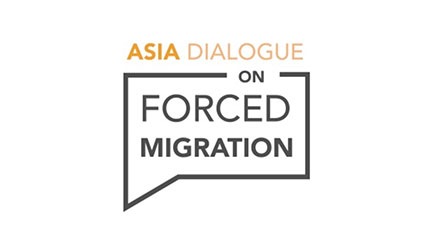Ahead of the 2020 Summit, this instalment of ‘5 ideas in 5 minutes’ presents a selection of the ideas floated by participants so far:
1. The idea: Open-access government
Who: Miriam Lyons
2020 Stream: Future of Australian governance
“We need wide-ranging reforms to the way that government owned or funded information is made available to the public, based on the following principles:
* FOI requests should be a last resort: online publishing should be the default practice for most kinds of potentially useful information. Restrictions on access should be subject to a well-defined and limited set of exemptions, specified in a revised FOI act.
* In general, taxpayers shouldn’t have to pay for the same information twice – circumstances in which cost-recovery charging will be imposed should be limited and well-defined.
* These reforms should take in the ABC and SBS, Commonwealth-funded university research, and data held by government agencies and statutory bodies.
Investigation of strategies for making much more government data available to the public at low or no cost should be incorporated into the terms of reference of the ICT purchasing review recently announced by Lindsay Tanner”Read more: http://cpd.org.au//node/4585
2. The idea: research grants made conditional on open dissemination of results, with an opt-out clause for commercialisation
Who: Joshua Gans
2020 Stream: The productivity agenda
“There has been a trend towards encouraging, and even mandating, commercialisation of scientific knowledge as a pre-requisite for receiving government funding. This, however, can conflict with how future knowledge is created; something that requires maintaining the ability and incentives for current knowledge to be disclosed and used in an unfettered manner. To provide an appropriate balance, my idea is that grants should require open dissemination but with an option to ‘opt out’ of such requirements by refunding monies should conflicting commercialisation properties present themselves. Giving scientists and commercial funders a menu of public support options and requirements will improve the mix and efficiency of scientific knowledge dissemination.”Read more: http://www.economics.com.au/?p=1406
3. The idea: Randomised Policy Trials
Who: Andrew Leigh
2020 Stream: The productivity agenda
“Randomised trials are the gold standard in policy evaluation. Overseas randomised trials have taught us much about early childhood intervention, improving school attendance, job training, health insurance and neighbourhood spillovers. Yet Australia does very few randomised policy trials. To remedy this, the federal government should establish a fund to support states and territories in conducting randomised policy trials. Indigenous policies, education policies, and social policies ought not be driven by rhetoric and ideology, but by bold, persistent, experimentation. Policymakers should be more modest about the limits of their knowledge, and more rigorous in putting policies to the test.”Read more: http://andrewleigh.com/?p=1874
4. The idea: Community Broadcasting Foundation to become the Community Media Foundation
Who: Elliot Bledsoe
2020 Stream: Creative Australia (youth summit)
“Australia has one of most advanced community broadcasting sectors in the world but we are currently lagging behind when it comes to community media convergence. With some support, Australia’s community media sector can easily meet the challenges of the digital age. The solution is simple:
* Expand the definition of community media; and
* Establish an additional funding stream for online activities.
The first step is to expand the operations of the Community Broadcasting Foundation and provide additional funds to support online community media. Reconfiguring the CBF into the Community Media Foundation will boost the diversity of projects and opportunities afforded to Australians to express themselves, while promoting training, technological innovation and new techniques for building community dialogue.”Read more: http://plastikkpoet.blogspot.com/search/label/Community%20Broadcasting%20Foundation
5. The idea: Better online tools for communication between the government and the governed
Who: Brett Solomon
Stream: Future of Australian governance
“A contemporary healthy democracy relies on an engaged citizenry who not only inform but also actively create our political reality. Apart from the periodic opportunity to vote, for too long we have been excluded from the processes that result in the key decisions that we make as a nation. The good news is that inclusive and deliberative processes break down the barriers to political engagement.
Sincere financial and political investment is required in accessible means to allow multi-channel pathways to engagement. What better way, than to employ new and online technologies to engage the broadest constituency at the deepest level. This allows the free flow of information both ways between the government and the governed, but also the formal incorporation of community consultation in the decision-making process.
New technology has revolutionised the way we do everything – from shopping to communicating – now, it is also revolutionising the way we do politics. A transparent and accountable online interface between the governed and our governors will be essential to a vibrant democracy and our shared 2020 future.”Read more: http://www.getup.org.au/2020/idea.php?ideaID=68



